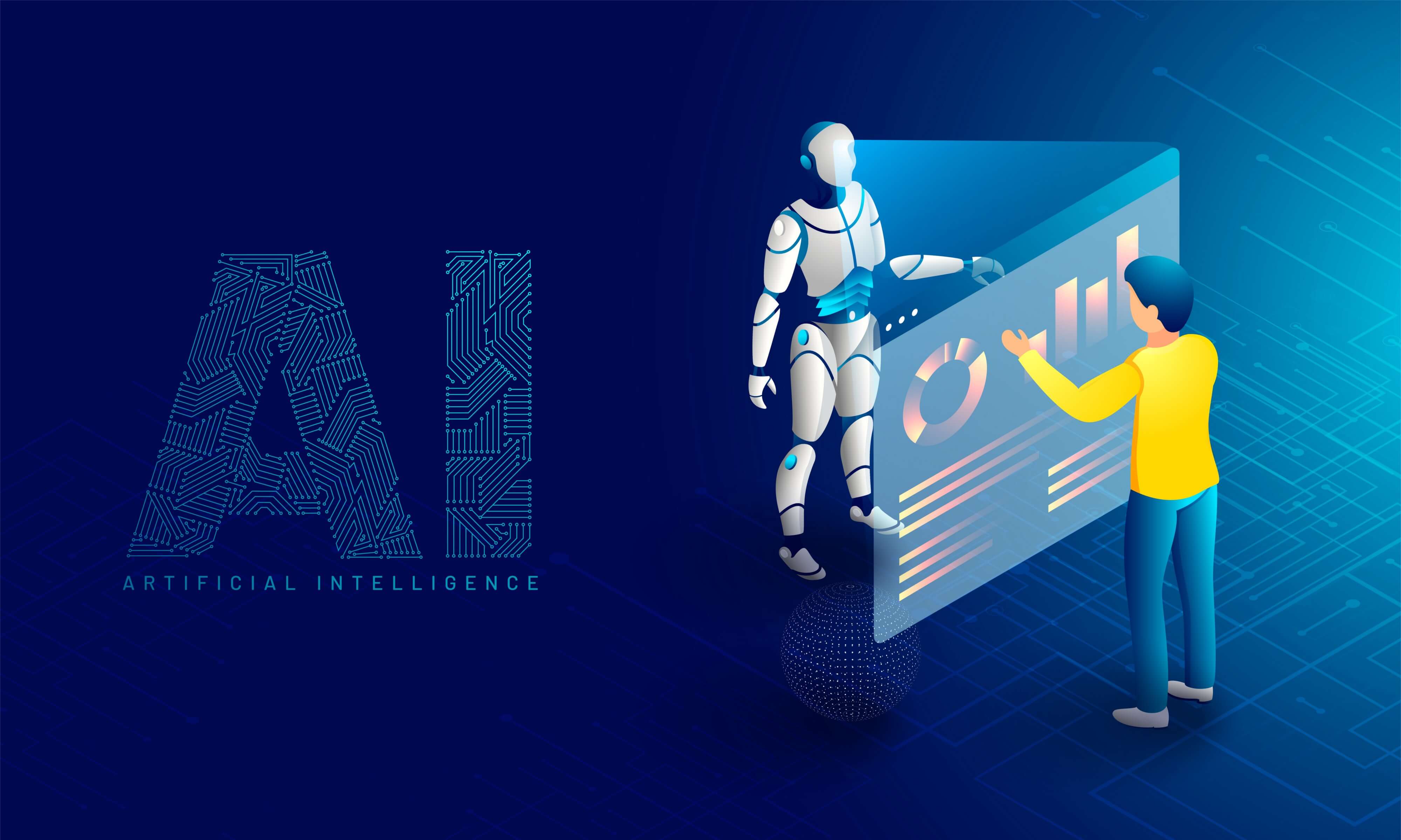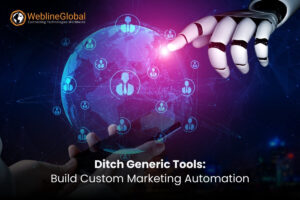
From waking up in the morning to being informed about the weather forecast and the day’s schedule by Apples Siri or Googles’ Assistant, we all in some way or another are dependent on borrowed intelligence and recalling abilities more than we realize. After having a really long supporting role in the field of life, artificial intelligence (AI) has revealed itself to be fit for a leading role, as people slowly realize how dull life would be without it. It has proved itself to be better at any task than humans and have replaced them in many fields, making the completion of tasks more efficient, as well as introducing new techniques to make processes a lot simpler.
Artificially intelligent software and robots have seen advancements in their features and capabilities, thanks to complex tools and factors that have made this evolution look as simple as nature’s role in evolving living beings. One remarkable outcome of this progress is AI-generated websites, which leverage automation and machine learning to create seamless, efficient, and highly customized digital experiences. However, these tools have taken decades to develop and flourish. These are as follows,
AI Tools
Natural Language Generation
It is used in artificial intelligence applications to produce written or spoken narrative from the data set. It further consists of “Natural Language Processing” and “Natural Language Understanding”. Natural Language Processing enables these applications to narrate the data in human-like voice and tone, whereas, Natural Language Understanding has made it easier for software to run analysis on extremely large data sets, identify a pattern and then produce an answer which is easy for humans to comprehend.
Machine Learning
This involves investing effort and hard work to produce algorithms and statistical models for studying historic data, detecting patterns and learning from past experience to speculate its next move, without direct instructions or explicit programming. Machine Learning has given birth to some of the most miraculous inventions of recent times, including, autonomous vehicles.
Deep Learning
Deep Learning is a characteristic of artificial intelligence and a subset of machine learning. It involves the artificially intelligent entity being able to learn from unorganized and unlabeled large amount of data, going through it layers by layers or through deep neural network, which then influences its decision in real-life environment.
Robotic Process Automation
Robotic Process Automation is the ability of artificially intelligent software or robots to imitate humans in the workplace. These include computational products which are able to perform tasks, previously done by humans. However, this is done in a faster, efficient and less harmful way. Humans can now be more productive in mentally challenging tasks, rather than dull, repetitive and high-volume tasks which includes collecting, summarizing and presenting information from large data sets.
Speech Recognition
Converts human speech into a form which can be easily accepted and understood by computerized software.
Bio-metrics
Bio-metric is a tool used in artificially intelligent applications to identify and differentiate individual human beings, one from another. This is made successful through the use of an innate human physical or behavioral feature. This tool is exclusively used in intelligent software to identify humans for security and surveillance purposes.
—
The applications of artificial intelligence can be characterized based on their capacity to imitate humans. Humans are gifted with several means to conduct tasks that other entities cannot. This is the full potential that researchers are trying to achieve in artificially intelligent machines. These abilities include:
Abilities of AI
Communication
This involves the ability of intelligent machines to perceive and understand written and spoken languages. It also includes the machines to be able to translate these languages into commands they can easily follow and respond to. Real-time transcriptions and voice controls are also a part of it.
Knowledge
The machine should have all the real-world knowledge available about a vast number of fields which it knows how to utilize efficiently. The knowledge could pertain to financial markets, health care markets, entertainment industry, etc. Knowledge should be complete so that it could be put to professional use, without failing to compensate for every detail.
Planning
This refers to the ability to anticipate any factors that could hinder the completion of the task, account for them and execute the task with precision. Inventory management, demand forecasting, physical and digital network optimization are some areas where planning is required and artificial intelligence is expected to deliver.
Reasoning
The ability to arrive at solutions for problems through coherent and consistent rationale. Tasks like financial asset management and application processing require reasoning in intelligent software that are replacing humans.
Perception
The ability to perceive one’s environment through the use of sensory inputs like sounds, images, and movements. Autonomous vehicles use this feature greatly.
—
Having these abilities and inculcated with tools and technologies mentioned above, artificial intelligence has taken the world by storm. These machines have strong applications in the business sector, medical industry, entertainment industry, and transport.
Industry Applications of AI
Finance
Finance industry peaked in growth after artificial intelligence applications were introduced. The uninteresting and repetitive tasks are now performed by computerized software which eliminates the element of fatigue and errors. The financial sector functions in accordance with its potential to perform extraordinarily in terms of real-time reporting, accuracy of reporting and processing of large quantities of numerical data. All of these tasks have been made easy with the introduction of artificial intelligence in finance. Natural Language processing tools make inferring brand loyalty and feedback towards their services achievable through collecting data on social media platforms and advising their customers through this forum. Robo-traders are used to perform extremely fast trading to increase profits. Firms like Kensho and Forwardlane use robots to re-analyze portfolio investments by human employees and help human financial advisors customize their advice. WeblineGlobal also contributes to the financial industry through its Financial Advisor App (largest real estate and tax valuation platform) and Patient Insurance Utility Tool (tracks clients’ insurance customers).
Read also : Financial Process Automation using RPA Solution
Healthcare
Healthcare and artificial intelligence go hand in hand. Artificial Intelligence has taken the responsibility of assisting everyone from the patients to the doctors. It has been saving lives in one hand and taking care of the logistics at the other. Safeguarding the medical records of patients, reducing costs for them by saving time, freeing up doctors’ schedule to give them some relaxation time and help students train on massive amount of data generated. Artificial intelligence has helped companies like NuMedii to develop connections between diseases and drugs at a larger level, while GNS Healthcare uses algorithms to prescribe patients with effective treatment. WeblineGlobal has also developed apps like Trainer’s Notebook App and Gym Management App to track clients’ health progress.
Entertainment
With new media services like Netflix and Amazon surfacing, one has to appreciate the self-learning algorithms which make the experience of online streaming so much more convenient, hence, pleasurable. These algorithms memorize and categorize the viewers’ preferences to recommend what to watch to the viewer himself and ultimately compare it with other users for gift suggestions. Artificial Intelligences’ services to the entertainment industry cannot be appreciated enough without the mention of social media. It looks into your past web searches, interactions, behaviors and everything you do during your time at the website to adjust your newsfeed according to that. Filtering spam and protecting your personal information are few other duties of artificial intelligence software used by social media websites. Apps like Asset Management Solution by WeblineGlobal, help its users stay organized even in fun times, allowing them to store, display and share their images.
Travel and Transport
Identifying travel and transport as essential to everyday life, many firms operating to provide artificially intelligent solutions to important problems have capitalized on this opportunity. Computerized travel assistants help you navigate through useful travel tips, landmarks which shouldn’t be missed, food service options in a foreign land, as well as take on the hectic responsibility of making arrangements for the trip. Similar chatbots are used by travel agencies which make customer service more satisfying through immediate and appropriate responses, tailoring to customer demand. Showing the fastest and easiest route to take after taking into account road and traffic conditions, GoogleMaps might be the most famous algorithm in use right now. Companies like Tesla and Mercedes-Benz have already introduced their driverless cars, using information collected through cameras and sensors installed in the car o navigate through the traffic.
The integration of artificial intelligence in the society seems to be inevitable. It couldn’t be avoided even if someone wanted to. Artificial Intelligence right now has the power to define how our industries and households will be run right now and in the future.
Social Hashtags:
#ai #artificialintelligence #aiml #machinelearning #deeplearning #rpa #roboticprocessautomation





